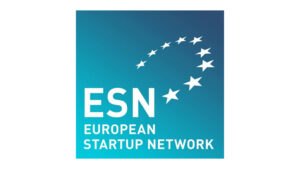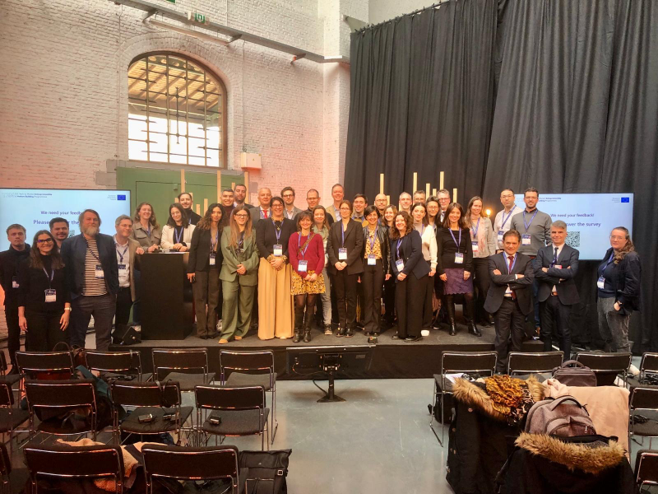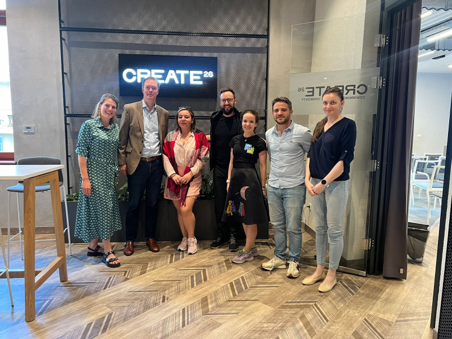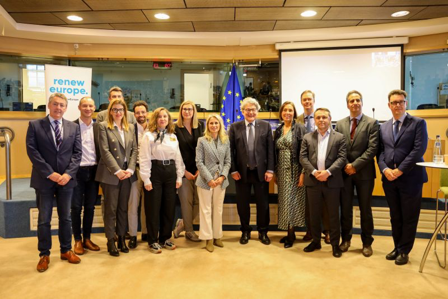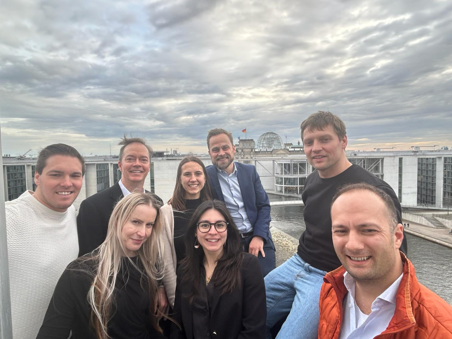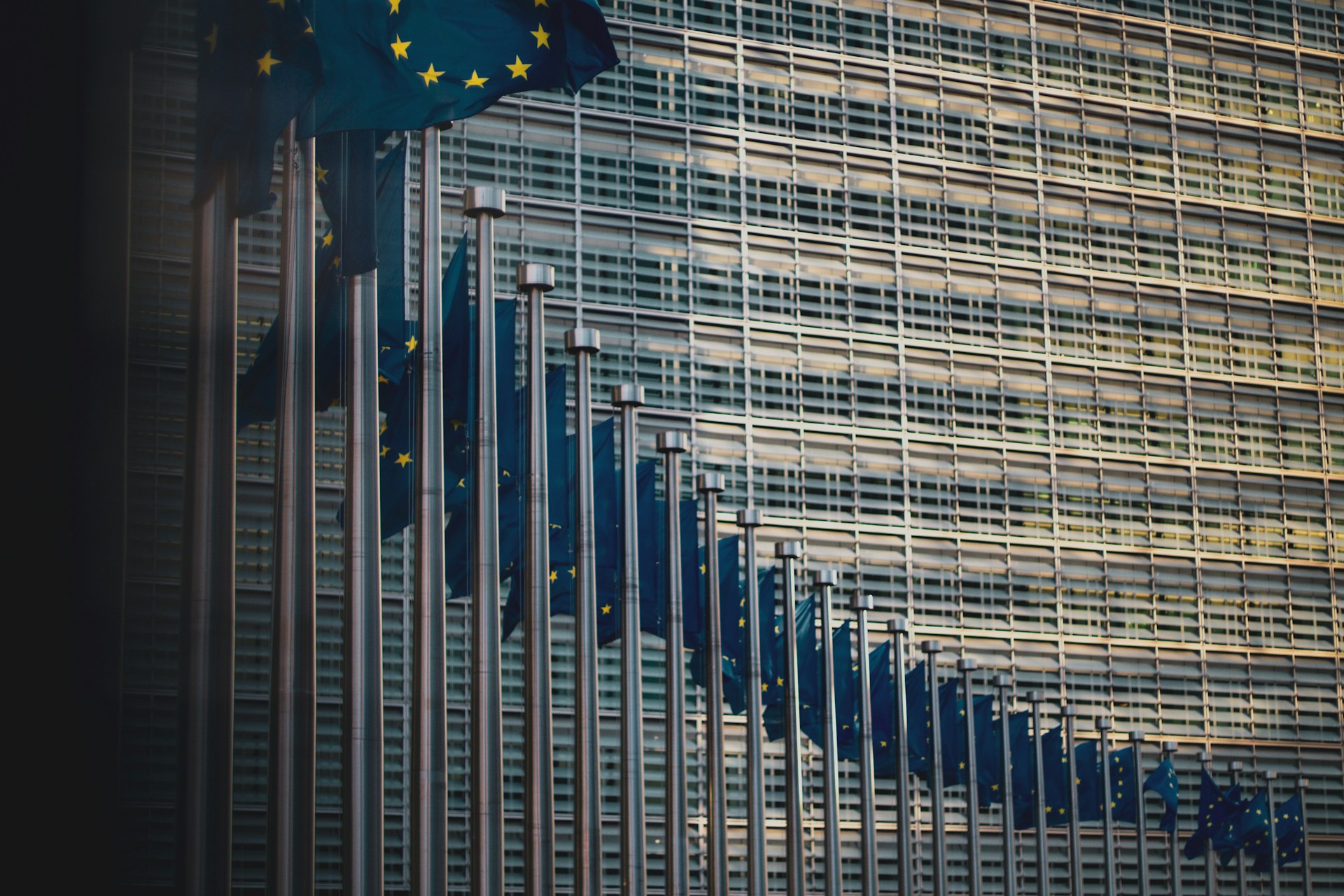
European Startup Network (ESN) is…
… an international non-profit organization acting as an umbrella for national startup associations from Europe. ESN was founded in 2016 and is based in Brussels, Belgium.
ESN is…
– independent: ESN does not receive funding from States nor from Big Tech
– apolitical: ESN is neutral towards all political parties and movements
– member-centric: ESN is an enabler for members looking to have a footprint beyond their national borders
ESN’s mission is to make Europe a powerhouse for innovative entrepreneurship.
European Team

David Hanf
PRESIDENT
CFO/MD of DePoly
By background, David is an entrepreneur. He is currently CFO/MD of DePoly, a revolutionary startup in the plastic recycling space. Before, he was CFO/MD of Thermondo, a Berlin-based Scale-up and Germany’s largest B2C service company for green heating. Before Thermondo, he was part of building smava.de, Germany’s leading online loan marketplace, as CFO/COO. David also co-founded the German startup association, and has been involved with ESN for many years. He is also an active Angel Investor.

Clark Parsons
CEO
Managing Director, Internet Economy Foundation
A longtime advocate of Europe’s tech ecosystem, Clark leads the ESN as its CEO. He also serves as the Managing Director of the Internet Economy Foundation, an independent think tank in Berlin that is dedicated to the development of European digital and technological sovereignty. Having co-founded a startup in the telecom space in 2005, Clark later went on to lead the Berlin School of Creative Leadership.

Hajdi Cenan
BOARD MEMBER
President at Croatian Startup Association
Hajdi is co-founder & CEO of the AI startup airt. Before airt, she was the Executive Director of the most awarded Croatian digital agency DRAP, to which she came after holding numerous positions in the leading media company EPH, including Director of Sales and Marketing and Director of tourism publishing. Hajdi was named among the top 100 most influential businesswomen in Croatia, nominated for the Veuve Clicquot Business Woman Award, and listed among the top 100 most important STEM entrepreneurs in Croatia. She also served as the VP of the Croatian AI Association and has co-founded Croatian Startup Ecosystem Association (Cro Startup) where she now serves as the President.

Hannah Wundsam
BOARD MEMBER
Managing Director at AustrianStartups
Leading Austria’s biggest startup platform and think tank, Hannah inspires, connects and educates entrepreneurs with AustrianStartups. She’s a guest lecturer, keynote speaker, and mentor at several startup events, as well as a board member of Global Shapers Vienna. Forbes 30under30 honoree in 2021.

Raphael Tobler
BOARD MEMBER
President Swiss Startup Association, Co-Founder and CEO of eduwo.ch
Raphael is the founder and still CEO of the education platform eduwo.ch, founder of Startup Nights, the largest startup event in Switzerland with 10,000 visitors and founder of Home of Innovation, one of the largest startup spaces in Switzerland with 6500 sqm.
As President of the Swiss Startup Association (SSA), Raphael and his team are primarily politically active to improve the framework conditions for startups in Switzerland. In addition to political activities, the SSA organizes around 15 events per year.

Esben Gadsbøll
BOARD MEMBER
Chairman, Danish Tech Startups
Co-founder & board, TechBBQ; board of Export and Investment Fund of Denmark.
Esben co-founded WhiteAway.com in 2003. Since then he became a business angel and partner in Nordic Makers. Today he is working full time on making Denmark and Europe an innovative hotspot and making sure democracies will lead the global innovation towards 2050 and not just regulate it.

AGATA HIDALGO
BOARD MEMBER
Public Affairs Lead at France Digitale
Agata is in charge of institutional relations, policy and advocacy at international level for France Digitale. She also contributes to the coordination of the public affairs team for projects and publications.
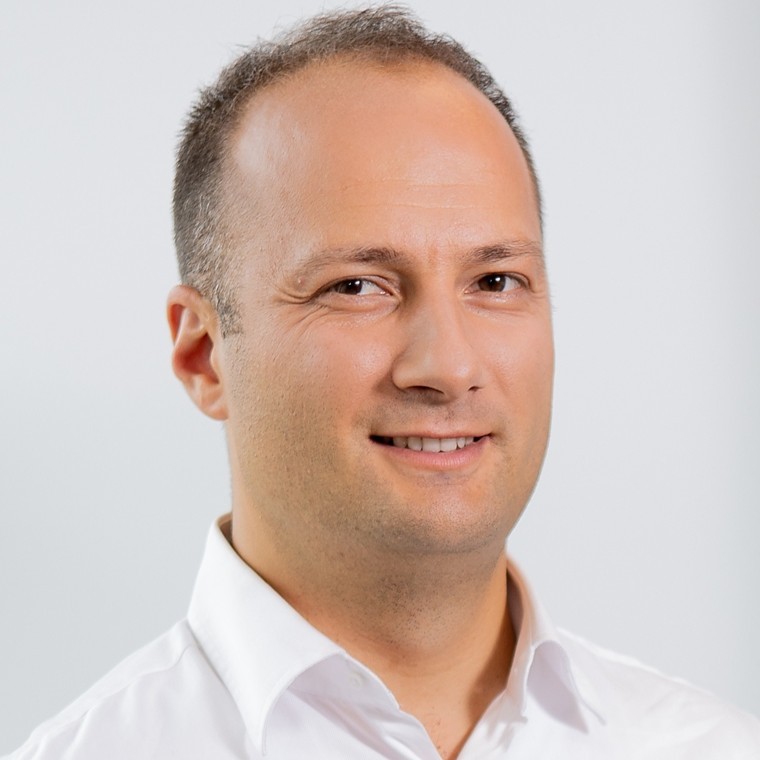
CRISTIAN DESCALU
BOARD MEMBER
Gapminder VC Fund Partner; Managing Partner & CoFounder of Techcelerator
As an entrepreneur, Cristian founded or co-founded several businesses and major projects aimed at the development of tech startups and digital innovation areas such as GapMinder VC, Techcelerator, ROTSA -Romanian Tech Startups Association, and others. In 2012, Cristian launched ClujHUB, the second-largest startup hub in Romania, a key contributor to the regional startup community.
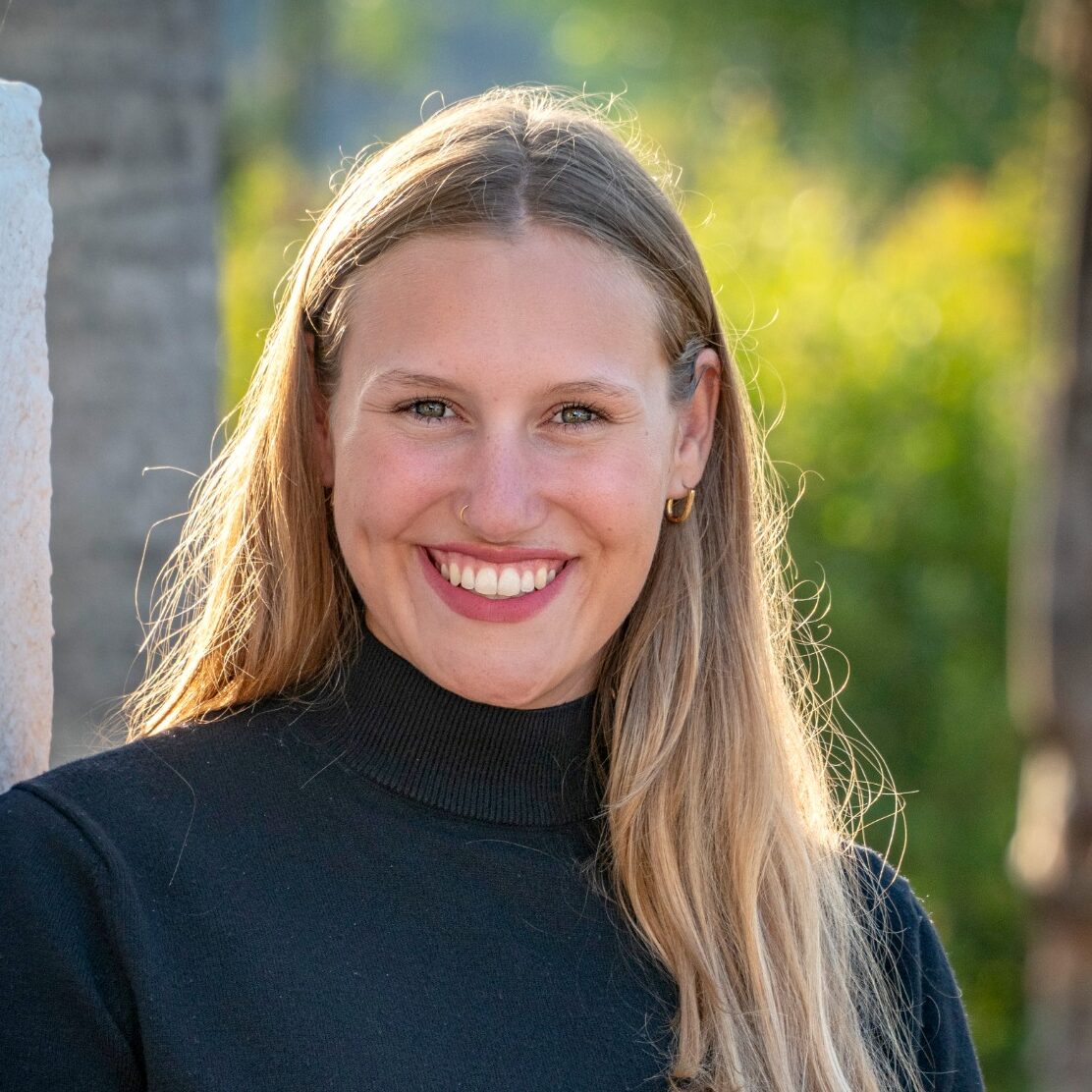
KITANA ROGGEN
INTERN
As a recent graduate in International Relations and Politics, Kitana will strengthen our team with Membership relations, Marketing and Communications. Having lived in key European hubs such as Brussels, Paris, Lisbon, and Berlin, Kitana brings not only a deep understanding of diverse cultures but also valuable insights into the unique startup ecosystems across Europe.
GABRIELE ROMAGNOLI
PROJECT MANAGER
Gabriele works with the ESN to help deliver coaching and mentoring to startups as part of the CIRCE consortium’s support for the EIC Tech2Market project.
ANELIA HEESE
PROJECT MANAGER
Anelia works with the ESN to help deliver community building for innovation organisations as part of the CIRCE consortium’s support for the EIC Tech2Market project.
CATY MAMPEY
BACK OFFICE SUPPORT
Via the ESN’s contract partner, Unikoo, Caty supports the ESN in financial and legal affairs.
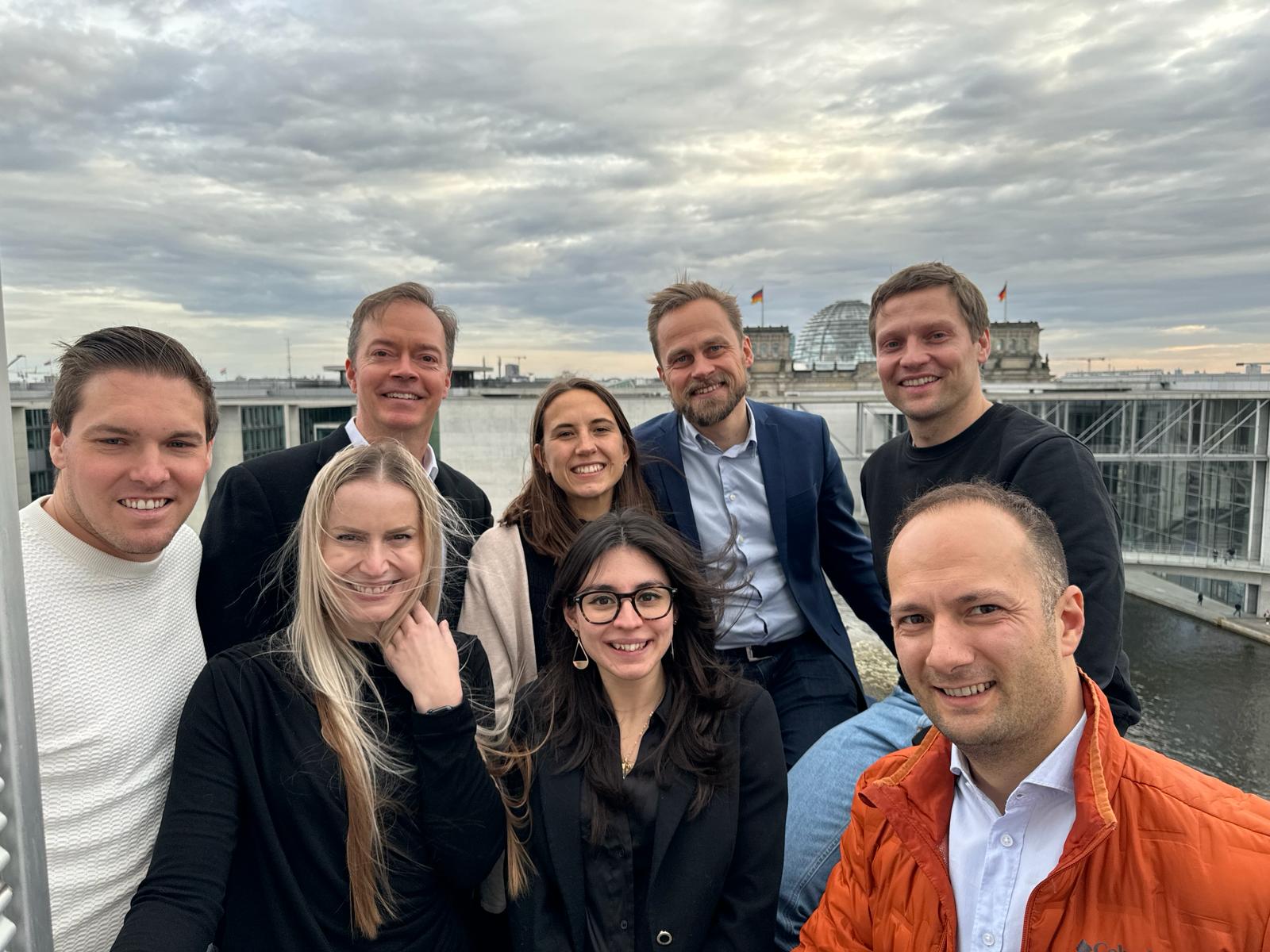
we are committed to startups
A 10-Point Plan for A Competitive Continent
The European Startup Network’s Agenda for the European Union
Europe needs to reinvent its economy, as quickly as possible, to help it become technologically sovereign, sustainable, energy independent and self-reliant. We cannot be caught unprepared again with critical dependencies in our supply chains. Big Tech Platforms now threaten to commoditize more of our key economic sectors by capturing the most valuable resource: the data. We need a continent’s worth of new products, processes and services.
The good news is that Europe has all the building blocks it needs to form one of the greatest innovation flywheels in history. We have capital, markets and a union (but not a capital markets union). We have thriving technologies that lead the world, e.g. in health care, energy tech, biotech, mobility or industry. We have talent — actually not enough of it to fill all the open jobs — but our universities and research institutions continue to produce the brains that power much of the world’s breakthroughs. Of the 8 person Google team that wrote „attention is all you need“, the paper that led to Chat GPT, 6 of the 8 were Europeans. Indeed, Germany filed the second most AI patents last year, only behind the US.
But where are our world-leading companies? Often flipping their location to the UK or the US to get financing. Or beaten or purchased by a US rival with more capital. Or snapped up by a hyperscaler to extend our status as data colonies for hungry AI models. Outside of Europe, despite our increasing strength in climate tech funding, the global tech struggle is still viewed as a 2 horse race between the US and China.
Some positive news: While the EU has been busy over the last 5 year mandate, doing the essential work of creating contestable digital markets and a rules-based framework, Europe’s startup ecosystem has hit puberty. The oldest startup organizations like France Digitale or the German Startup Association are almost teenagers. And now the maturity of the ecosystem can be seen in the emergence of startup federations (ESN Members) all across the continent. More importantly, a generation of successful entrepreneurs have been reinvesting in their local and national ecosystems. It is the startups of Europe that have been creating the jobs. Over the last decade, Europe’s net job creation would be zero if it were not for the technology sector. Startups are meeting Europe’s most pressing challenges — tackling climate change, making a digital transition, harnessing AI to develop life-saving drugs, and even innovating on the battlefield to defend our freedom. If Europe wants a strong economy, it needs strong startups and scaleups. If we want to compete, our startups and scaleups need to compete.
That doesn’t just mean reining in gatekeepers, it means removing some of the roadblocks that make it so hard for our own companies to compete. We won’t build champions on regulation alone; we have to enable the hard work of growing and scaling global players. So while we are excited to see all the energy being unleashed by the European Innovation Council (EIC) programs to help turn our deep tech researchers into entrepreneurs, we know that most of them will face the same issues as the previous waves of startups face.
So how can Europe spend the next decade growing its startups & scaleups – who ESN’s members represent – into global players? Once the next EU Parliament and Commission are in place in the Fall of 2024, the united startup ecosystems of Europe call on them to:
Complete the Single Digital Market
1. We need a legal and fiscal “passport” allowing companies to operate in all 27 member states without having to file documents and certifications 27 times. This vision used to be called the digital single market. This would be a signature achievement if the EU could actually make it happen. It would enable our startups to scale up more quickly internationally, which is a key advantage of the US Market.
2. We need a pan-European regime of tech visas to enable companies to meet their demand for talent. The European tech sector is powered by highly skilled talent, much of it not from EU member states. A unified set of rules would make it much easier to challenge the US, UK, Canada or other tech hubs for global talent. In addition, we need the next generation of founders to come to Europe to start and grow their company here. The current visa regime does not apply, as per definition there are no employment contracts in place for entrepreneurs. We suggest a “founder visa” for them.
Deliver on the unfulfilled promise of a Capital Markets Union
3. STOCK OPTIONS — We need a harmonized or at least equivalent stock options regime. While Germany, Austria and Hungary have now improved theirs, many countries have not. It is crucial not only for securing talent — it is also the key to future investment. Studies show that circa 40% of proceeds from the sale of employee stock options get directly reinvested in the startup ecosystem.
4. VENTURE CAPITAL — We have to do more to attract pension, insurance and saving funds towards VC investments. They are capital source #1 in the US but only in 5th place in Europe. When one of Europe’s unicorns goes public right now, much of the upside goes to public sector retirees in California, teachers in Ohio, or firefighters in Canada, via their pension funds that invested in the VC funds backing startups. It’s a social and political tragedy that European workers aren’t enjoying similar gains.
5. DEBT — VCs cannot do it all, especially because CAPEX intense innovations like climate tech require debt when building their first-of-a-kind factories to reach the commercial stage. With the Swiss Technologiefonds as an example, we need a new form of European loan guarantees to get more banks to fund innovative scale-ups early.
6. EXITS — All startups that take venture capital hope to end up with an exit, either with an IPO or trade sale. We can’t just set the goal of a wave of unicorns without building them an exit ramp besides the NASDAQ or other non-European markets.
Complete the Tech Innovation Flywheel
7. Replicate our best tech transfer hubs across Europe. The EIC has been built to begin enabling more tech transfer by taking researchers and making them entrepreneurs. But while most grants and programs are aimed at individuals or startups, we should also work to replicate the best practices of the leading tech hubs – as ranked recently in an FT article.
8. Standardize the best practices for IP and tech transfer. The Bologna process finally standardized a pan-European regime for bachelor and master degrees and credit transfer points, unleashing unprecedented transparency and integration. The same standardization needs to be done for the way institutions handle the IP and professors / researchers that develop our deep tech future. Odious demands from institutions for massive equity stakes or revenue shares make it unattractive to ever bring a breakthrough to market. Winning Nobel Prizes and counting patents are of course important, but we have to also become the best in the world at monetizing our brain power. To do so, Europe needs to encourage member states to establish attractive terms to encourage spinouts & startups. There are some best practices that can already be replicated: member states like Sweden give professors complete control over their IP; and federations like the T9 group of German technical universities are working to harmonize tech transfer terms.
Make the European Commission fit for the Challenge:
9. A startup-powered competitive economy has to be a day-to-day priority for the next Commission. We need a Commission VP for the Innovative Single Market, or a dedicated Startup & Scaleup Commissioner. Someone needs to focus constantly on creating the conditions for Europe to become the most attractive place to found or fund an innovative technology business.
10. Regulatory Pause. Finally, after all the great (and not so great) new tech regulations that have been passed, Europe’s startups and scaleups need time to digest them. We need clarity. We need uniform enforcement. Six years after it took effect, companies still do not know how to get certified as GDPR compliant, and the AI Act is still years away from full enforcement. Our founding teams need to focus on product market fit or financing, not just compliance with a list of regulations that keeps getting longer and longer. Many of the new rules are aimed at huge companies; they can afford to hire lawyers and comply. Our startups usually can’t.
We are optimists. Indeed, optimism is an essential requirement to become a startup founder: a belief that hard work can lead to a better future, or that a global champion can come from anyone, anywhere. So when we look 10 years ahead, we see a Europe enjoying peace and prosperity, with its Eastern and Southern members continuing to drive growth everywhere. The digital and green transitions will have remade our cities, workplaces and lives. Some of the recent legislation to open markets, such as the DMA, will have made Europe competitive in digital markets.
There will be many new company names we’ll have learned, many great new products and services. How many of them will be European? How many will reflect our values? That is in the hands of the consumers and voters of Europe, but also in the hands of the next Parliament and Commission. ESN members’ startups and scaleups are working every day to build Europe’s next economy, but they need better conditions to succeed. We look forward to working with the next EU Parliament and Commission to change this.
About ESN: The European Startup Network (ESN) is an international, independent and apolitical non-profit organization acting as an umbrella for national startup associations from Europe. Its mission is to make Europe a powerhouse of innovative entrepreneurship. ESN was founded in 2016 and is based in Brussels, Belgium.
Press contacts:
Clark Parsons (EN & DE) clark.parsons@europeanstartupnetwork.eu
Alexandre Labarriere (FR) – alexandre@francedigitale.org
